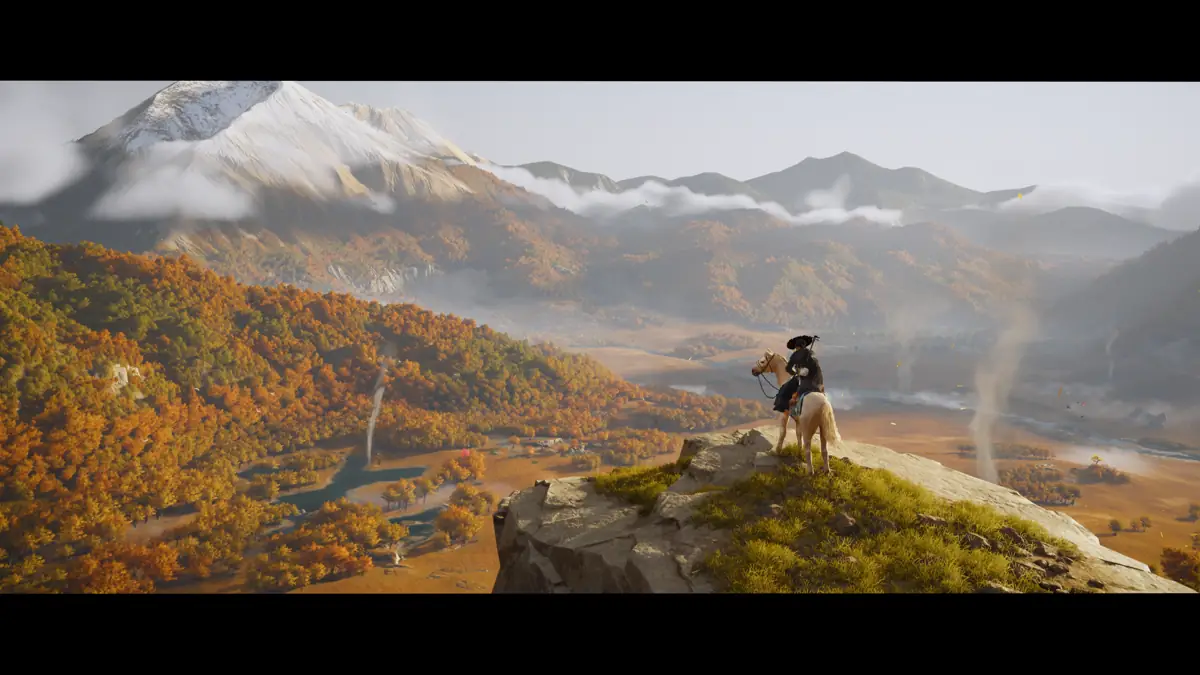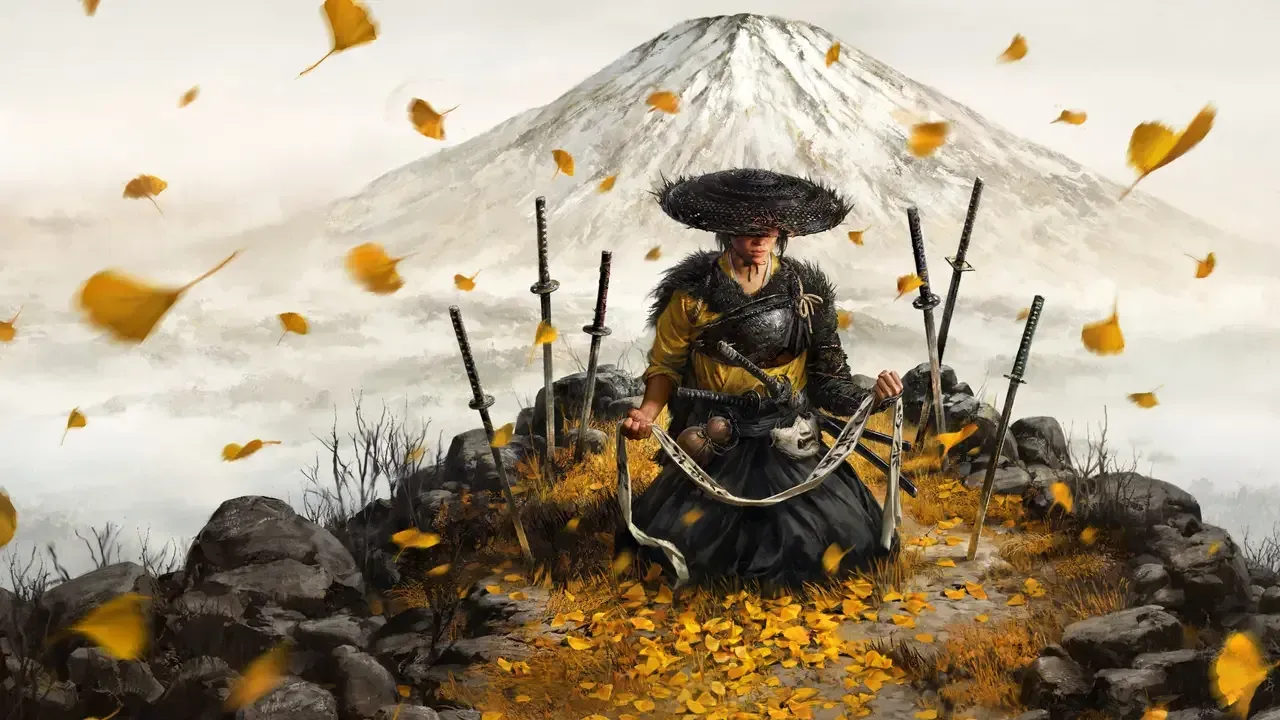Distributor provided a review copy.
After five years of waiting, Ghost of Yotei, the sequel to Ghost of Tsushima, arrives on the PlayStation 5.
On the surface, not much has changed in Sucker Punch's epic series. We're still a lone wanderer out to right wrongs – even if doing so means committing some wrongs of our own – and the open world is still a romantic vision of the past that never quite existed this way.
But look past the initial similarities and you'll discover a deeper, more nuanced experience that smartly builds upon the first game. Yotei doesn't redefine so much as it refines; but when it's done this brilliantly, that hardly seems like a complaint.
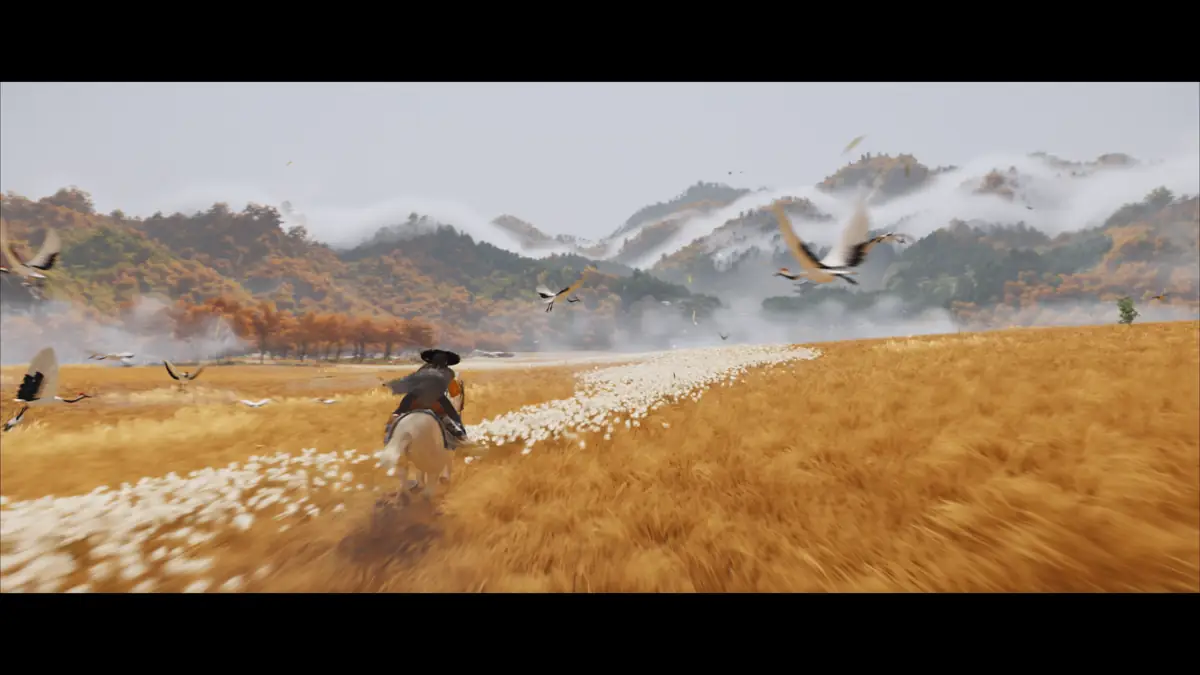
Story & gameplay
Ghost of Yotei is set over 300 years after Jin's trail of vengeance on Tsushima, this time on the island of Ezo (present day Hokkaido). Our hero, Atsu (Erika Ishii), witnesses the brutal murder of her family at the hands of warlord Saito and his Yotei Six.
16 years later, Atsu returns home from the mainland as a hardened mercenary. Burdened by trauma of both her childhood and the endless campaigns of conquest in Japan proper, she now seeks closure by any means necessary. Even if it ends with her death.
But Ezo is no longer the place Atsu remembers. War has ravaged the land, and samurai – both sworn to lords as well as ronin – rule the territory. To survive, Atsu adopts the persona of an Onryo, a vengeful ghost of ancient folklore, as she begins her long hunt for justice.
The way this unfolds is mostly up to the player. Ghost of Yotei is technically a linear story, but told through non-linear choices based off which of the Yotei Six the player chooses to hunt first. Some areas remain inaccessible or too difficult until the story deems fit for you to explore them, but even those feel like minor obstacles in the face of the freedom given.
Older gamers will fondly remember the underappreciated Xbox title Viking: Battle for Asgard, in which players gathered armies to take down the forces of Hel in a – at the time – mostly open-ended manner.
In Yotei, Atsu's journey opens as fast or as slow as the player wants it. During my review period, I found myself often just idly wandering the countryside, playing up the fantasy of the wanderer, only to meet with peasants and other travelers, each with different tales of the people I was hunting.
In theory, you could play the entire game without any UI elements and still know where to go thanks to the stellar game design. Ezo is a vibrant and easy-to-navigate location, one of the best gaming worlds ever created, and there's a natural flow to every place on the island. Sure, you could still follow the brilliant wind mechanic and head in the right direction just with that alone, but there's so much fun in discovering hidden roads and weathered signs pointing towards inns just as the sun is about to set.
When you're not staying in town, you can set up a camp, and watch as the world comes to you. Locals can spot fire from miles away, and there is always someone to share a bit to eat or a song to sing. It's all flavor on top of an already captivating adventure, but it doesn't feel superfluous. Instead, every moment makes you feel more connected to the world and rhythms of Ezo.
In a happy surprise, Yotei doesn't shy away from Japan's own history of displacement, giving voice to the Ainu people of the north, who were nearly wiped out as the world shifted around them during the colonization of the islands. There's a beautiful sense of understanding that builds between the downtrodden as Atsu connects to Ainu travelers and horse wranglers on her journey.
Beyond that, Atsu can spend time rebuilding her old home, gathering a posse of likeminded adventurers and revolutionaries, as well as just collecting new songs to play on her trusty shamisen. As with Ghost of Tsushima, there's a wealth of things to do, and most of it is so much fun you won't even notice when things start to get a bit on the repetitive side.
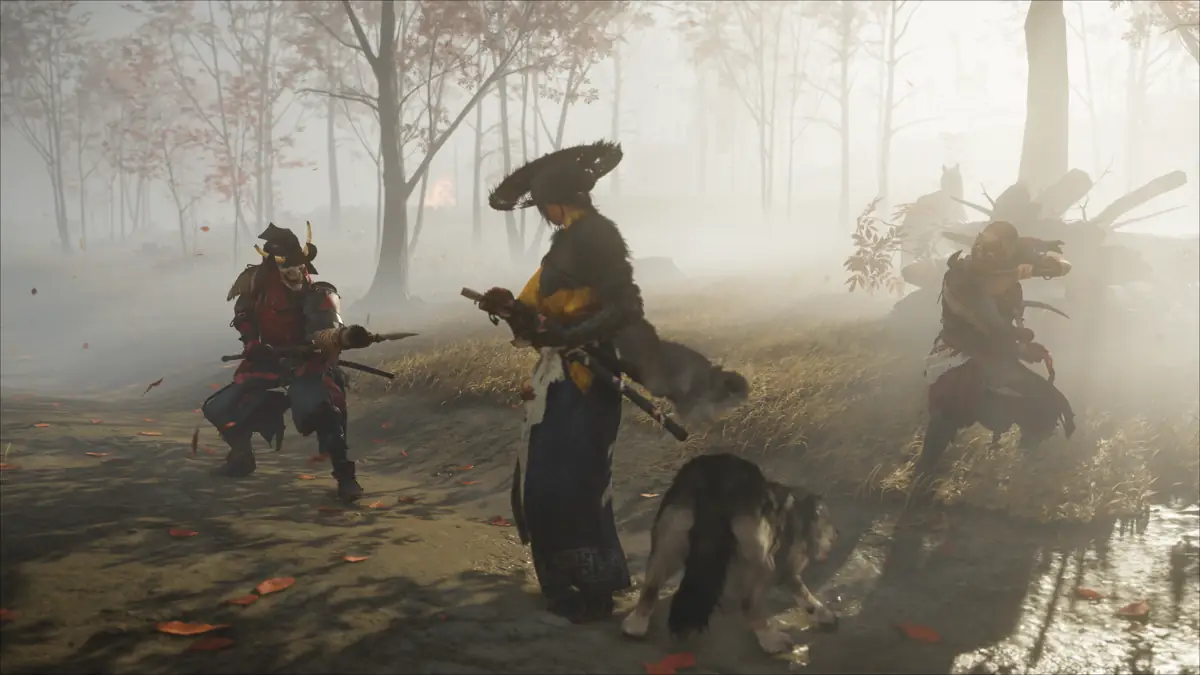
When violence breaks out, as it does often, Yotei ups the ante from the previous entry with a deeper and more rewarding combat system than before. Instead of stances, Atsu now wields six weapons, each with strengths and weaknesses towards enemy types. You can also update them with new skills, bringing the barrier of use down even further.
To add to the explosive mix of cinematic bloodshed, Atsu can grab and throw disarmed weapons, which is as cool as it sounds. It's a simple but immensely satisfying thrill to first parry an attack, dismember a baddie, and then use their sword as a projectile against a distant archer. Silly? Yes. Cool? Absolutely.
At first, changing weapons feels a bit fiddly, as the menu to switch things out is behind the R2 button – the same used for every other action in the game. Pressing down opens a radial menu, which shows the weapons currently available for selection. Once you've chosen the one you like, you have to press the R2 button again to close the spiral and continue playing as normal. Too many times I found myself pressing the wrong button only to realize the selection wheel was still active, as muscle memory told me that logically it should close the moment I picked a weapon!
It's worth noting simply because it's one of the truly annoying parts of Yotei's design. If this sounds minor, that's because ultimately it is. It is a sign of a great game when something as miniscule as this warrants even the most flimsiest of whinging.
Luckily, everything else about the action sings. Combat is a beautiful mix of timing and carnage, lovingly recreating the romantic majesty of both old and new samurai cinema. It's not realistic in the least, but it's cool and operatic, and it captures the heart of the stories that Yotei emulates.
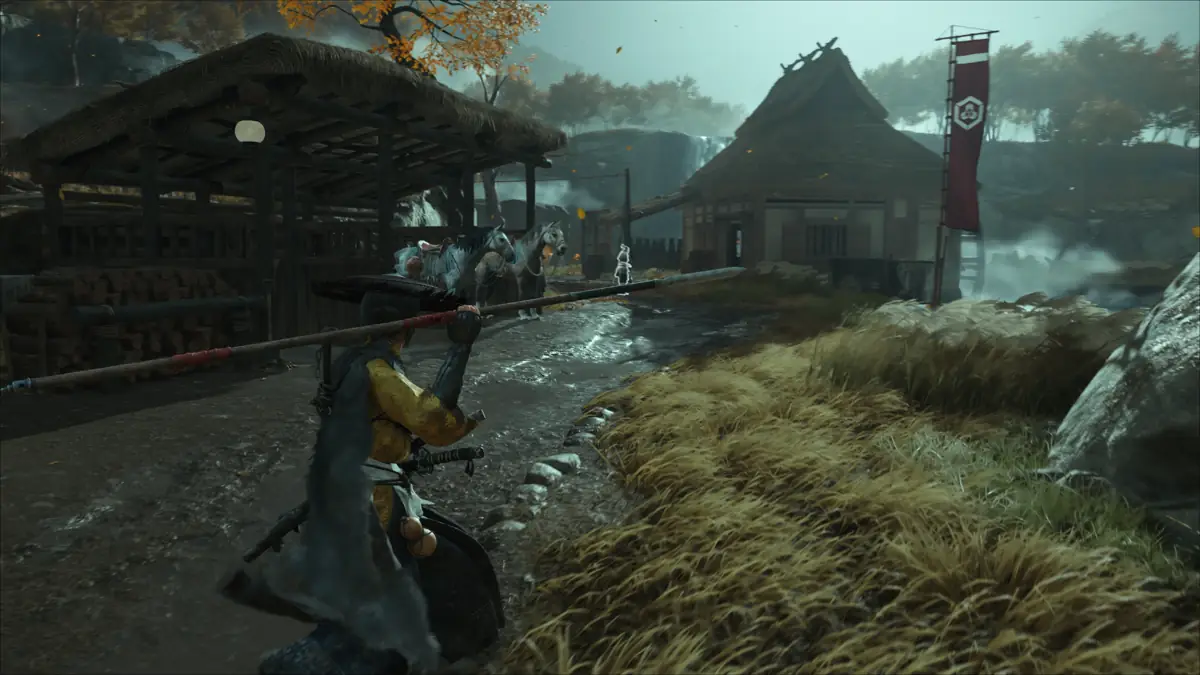
Mood and tone are the emphasis here, as Yotei expands from a simple revenge story to encapsulate themes of trauma, family, and class warfare, building on a foundation of Japanese folklore and cinema. Thankfully, the cinematic structure allows for freedom to play with time and place without resorting to historic cameos or thinly drawn timelines that pretend to match with reality.
Instead, Ghost of Yotei is like the Takashi Miike or Sinchiro Watanabe movies it namedrops in the two additional filter modes that are now available next to Akira Kurosawa's. That should indicate where the importance lies. As with Tsushima, where you composed Haiku's centuries before they were a thing, Yotei is more concerned with the emotional impact of living out a power fantasy in the ancient world.
One of my favorite additions has to be the Watanabe-filter, which adds a lo-fi soundtrack similar to that of Samurai Champloo. As with the other great samurai title this year, Assassin's Creed Shadows, it smartly mixes influences from both old and new Japanese music to create a wonderfully idiosyncratic experience. Simply put, it feels impossibly cool to get lost in Yotei with your own personal anime soundtrack playing in the background.
Accessibility and technology
Ghost of Yotei is another high watermark for accessibility settings, ranging from difficulty modifiers to visual and physical aids that allow players to make the experience as welcoming as possible.
Sucker Punch understands that games are best shared, and no trophy or function is locked behind accessibility gatekeeping like elsewhere. You get the same experience as everyone else no matter how you play the game.
On a technical level, Ghost of Yotei is hugely impressive. Loading times are minimal, even upon death, where the game instantly loads up a repeat of where you just perished. Fast travel has barely any perceptible loading screens, and every location you visit becomes a destination you can return to at the click of a button. It cuts down on endless back and forth grinding, which in turn allows the player to experience the world on their terms. By giving near limitless freedom, Sucker Punch lets their game breathe in peace.
There are two visual modes to choose from: Fidelity and Performance. The former emphasizes resolution and caps at 30fps, while the latter aims for 1440p/60fps, which, for me, is the ideal sweet spot. Yotei looks jaw-droppingly gorgeous even at a slightly lower resolution, wringing everything out of the base PS5. I never saw the frames dip below 60, either. Even in the most hectic battles, with massive amounts of visual extras for that big cinematic effect, Yotei stuck to a perfect presentation.
The graphics have naturally improved over time, but it's the direction both in voice-over and motion capture that stuns this time around. Character models and animations look superb as they evoke nuances previously unseen in the series.
Watch, for example, how a character reacts to the understanding they can't recapture the lost years between missing friends. The beautiful animation goes from bewilderement to confusion to profound sorrow, all in a single take. It is yet another magic trick that mixes engineering, software, and art in a stellar display of everything gaming can do.
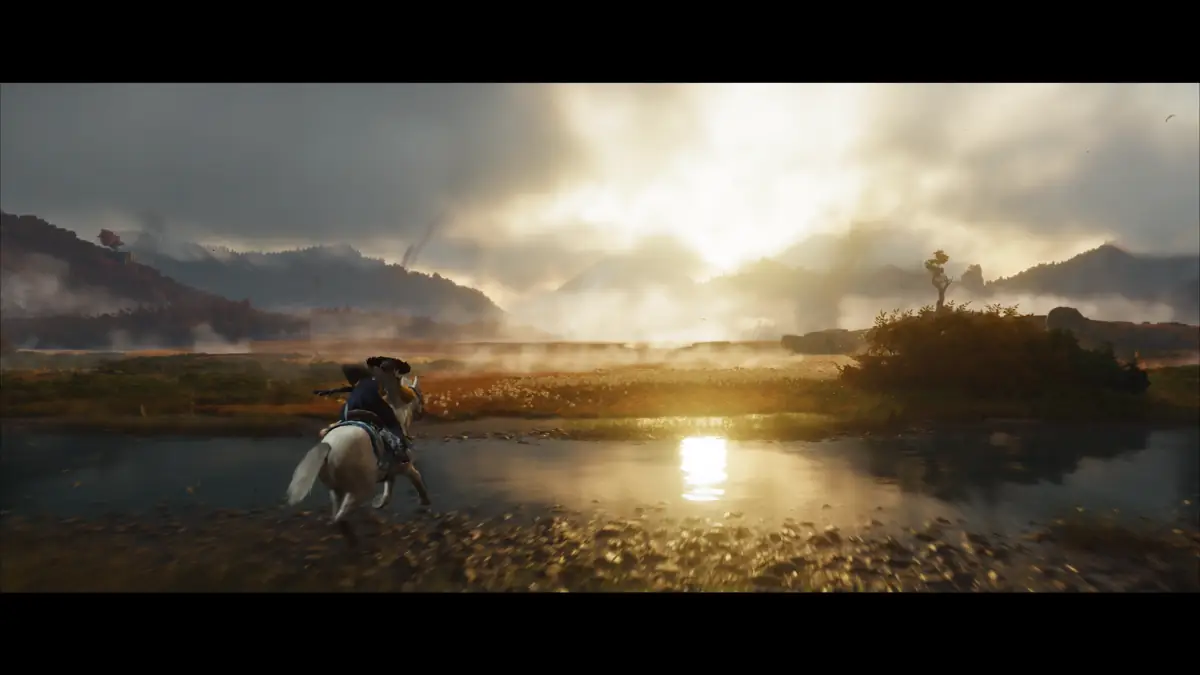
Verdict
A cynical person could gripe that Ghost of Yotei is more of an expansion than anything else. And there would be a bit of truth to that. It doesn't redefine the genre, nor does it rebuild anything from scratch. But it doesn't need to.
Instead, this is a game that understands itself and where it stands within gaming so brilliantly that it has the freedom to play things a bit loosely. We know where the boundaries are, so instead of pushing on them, Yotei builds a stronger inner life, with every mechanic refined to near perfection. In any other game, this amount of material would feel like unnecessary bloat.
Not so here, where even the main story takes 50 hours to complete. Yotei is so finely tuned, anything less would feel like you're missing out on something. Every new discovery is a gift, every battle a thrill, and every scaled mountain a new story to tell. When the co-op Legends mode arrives next year, it will be an opportunity to share all that with friends.
Ghost of Yotei is a generational masterpiece, encapsulating everything great about the open world adventure genre. This is a beautifully written and directed saga that stands tall alongside its influences without ever sacrificing the joy of gameplay and discovery at the hands of spectacle. It is one of the best games on PlayStation.
